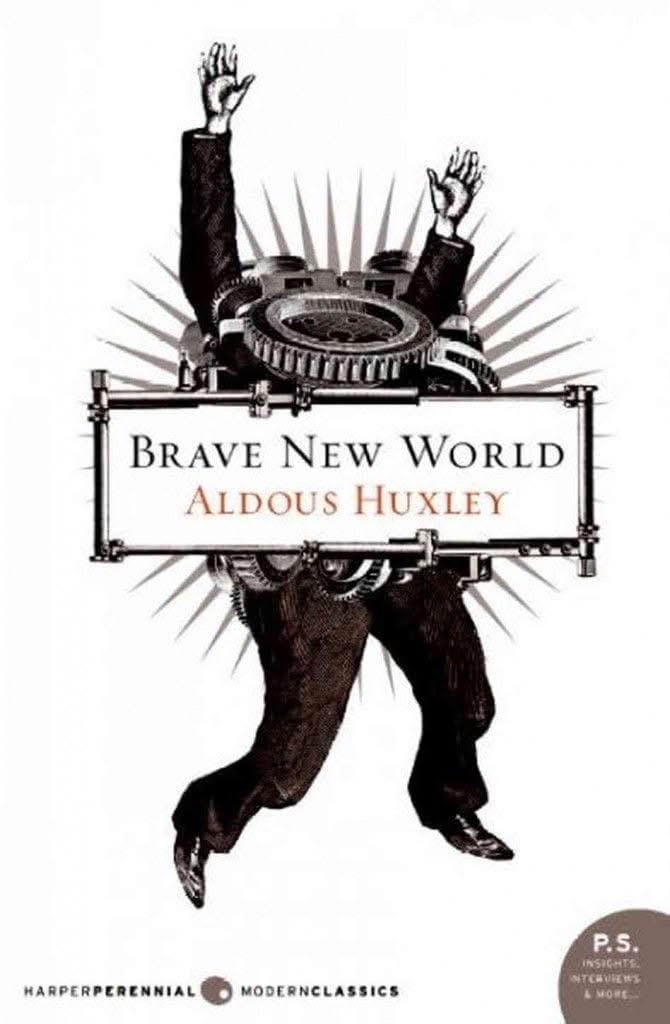Brave New World by Aldous Huxley

Brave New World by Aldous Huxley is a dystopian novel that imagines a future where society is perfectly controlled through technology, conditioning, and the elimination of emotional depth. People are not born but grown in laboratories, assigned to castes, and trained from birth to accept their roles without question. Everyone is kept happy with constant entertainment, casual sex, and a drug called soma that removes any real feelings of pain or dissatisfaction.
At first glance, the world seems peaceful and efficient. There’s no war, no poverty, no strong emotions. But as the story unfolds, it becomes clear that this so-called utopia comes at the cost of freedom, individuality, and true human connection. People are programmed not to think too deeply or desire anything beyond their assigned life. Real art, religion, and meaningful relationships have disappeared.
The story follows several characters, including Bernard Marx, who feels like an outsider in this system, and John, a man raised outside of the controlled society, who struggles to understand and survive in a world where nothing is real and everything is easy.
Huxley’s vision is cold and disturbing but incredibly relevant even today. It raises powerful questions about what we’re willing to give up in the name of comfort, pleasure, and order. The novel doesn’t rely on violence to show its horror — instead, it shows a world where people are so numb and entertained that they no longer care about truth or meaning.
Brave New World is sharp, chilling, and ahead of its time. It’s a warning more than a story — a look at what happens when we trade freedom for convenience and truth for distraction.


